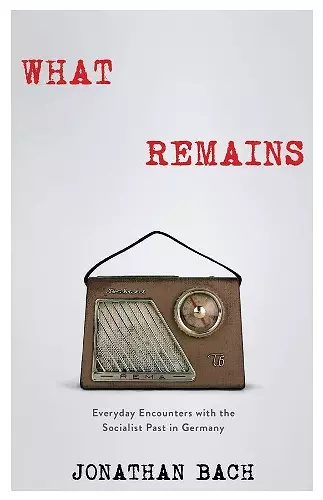What Remains
Everyday Encounters with the Socialist Past in Germany
Format:Hardback
Publisher:Columbia University Press
Published:20th Oct '17
Currently unavailable, and unfortunately no date known when it will be back

What happens when an entire modern state's material culture becomes abruptly obsolete? How do ordinary people encounter what remains? In this ethnography, Jonathan Bach examines the afterlife of East Germany following the fall of the Berlin Wall, as things and places from that vanished socialist past continue to circulate and shape the politics of memory. What Remains traces the unsettling effects of these unmoored artifacts on the German present, arguing for a rethinking of the role of the everyday as a site of reckoning with difficult pasts. Bach juxtaposes four sites where the stakes of the everyday appear: products commodified as nostalgia, amateur museums dedicated to collecting everyday life under socialism, the "people's palace" that captured the national imagination through its destruction, and the feared and fetishized Berlin Wall. Moving from the local, the intimate, and small to the national, the impersonal, and large, this book's interpenetrating chapters show the unexpected social and political force of the ordinary in the production of memory. What Remains offers a unique vantage point on the workings of the everyday in situations of radical discontinuity, contributing to new understandings of postsocialism and the intricate intersection of material remains and memory.
What Remains is a perceptive and - perhaps more crucially - a very sympathetic account of multiple ways through which ordinary people try to take hold of their politically controversial past. Bach creates an intricate but highly accessible story about the past that is not quite gone. -- Serguei Oushakine, Associate Professor of Anthropology and Slavic Languages and Literatures at Princeton University Jonathan Bach weaves his way elegantly and insightfully through Berlin's post-unification landscape, highlighting the absences, unsettlements and inheritances from the past. In doing so, he shows not only the potency of what remains but also the creativity with which it is addressed and new futures forged. This is a wonderful, highly readable yet deeply sophisticated book. -- Sharon Macdonald, Institut fur Europaische Ethnologie, Humboldt-Universitat zu Berlin
ISBN: 9780231182706
Dimensions: unknown
Weight: unknown
272 pages